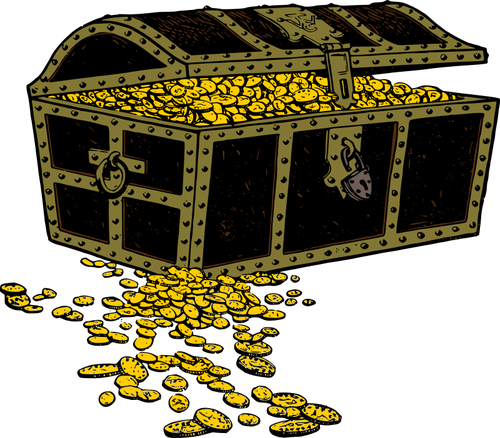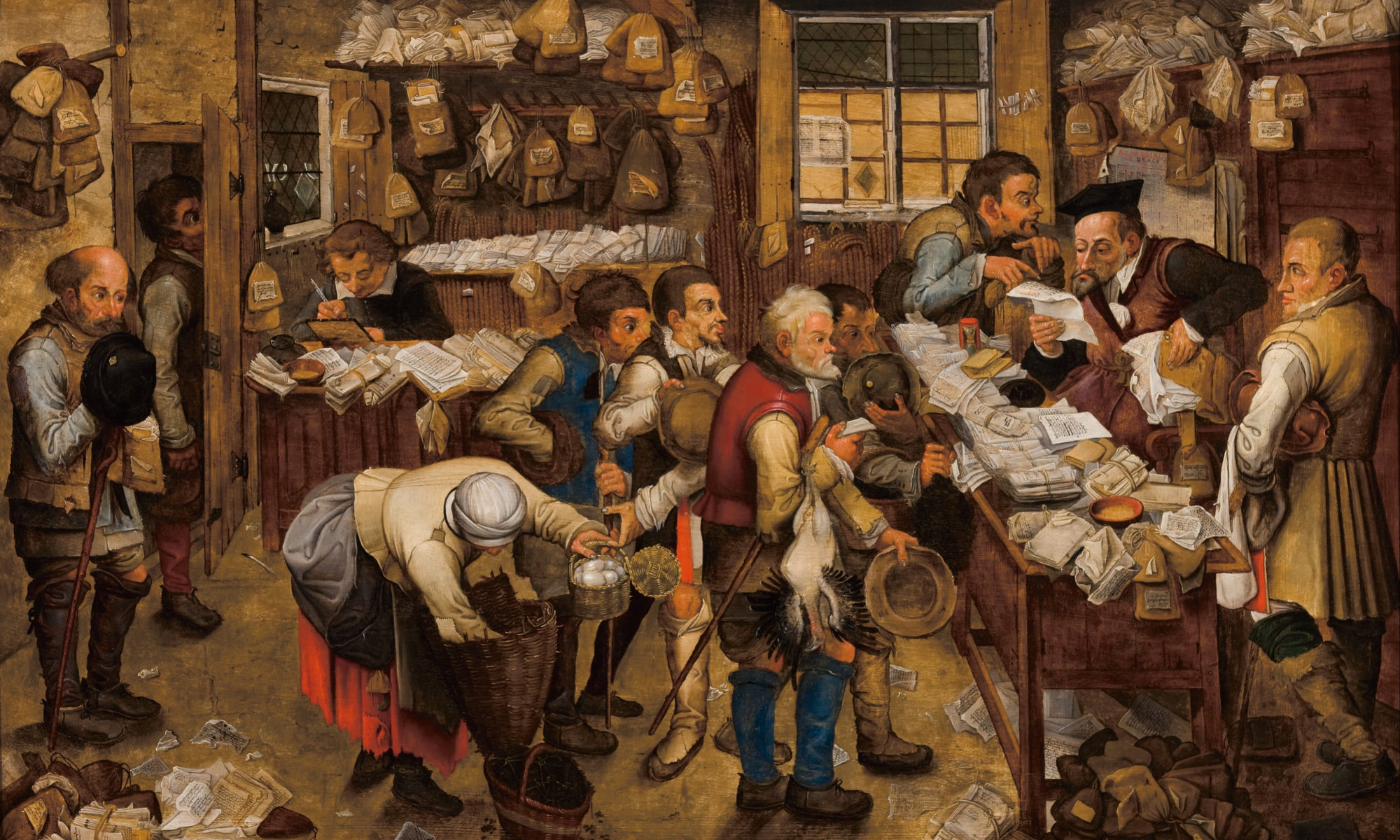Tax. What an ugly word right? Everyone hates them. Except the tax man. But even in medieval times taxes were an issue for the common man and noble alike. But without them the king could not build castles, raise armies or increase his coffers.

Types of taxes your players might be subject to
Adventurers in a Dungeons and Dragons campaign might encounter many types of taxes. Taxes could be a very important part of this game if you think about it. These players are out seeking wealth and taking it from other creatures. This tends to make them the richest people around. It would only be natural for the local king, baron, prince or whatever to want a piece of it. And why wouldn’t they expect it? Their other subjects pay them like clockwork.
And from the dungeon master’s perspective taxes help remove some of that massive wealth from their players. Money starts to have real value to the adventurers when someone else starts taking it from them again.
Some possible ways to tax the delvers comes to mind:
- Tolls
- Gate tax to enter the city
- Church tithes
- Import and export taxes
- Money changers and tax
- Road taxes for anyone travelling when the collector meets them on the road
- Duties paid to bring goods from other places into the city
- Tariffs on goods from hostile nations
- Excise taxes for being a member of specific professions
- Property taxes for owning land and estates
Separating adventurers from their money is an important activity. When players gain massive wealth they want to do several things with the money:
- Buy magical items and spells
- Buy castles and keeps
- Buy upgrades to their statistics
- Use their money to establish power of the common folks
I personally do not have shops that sell magic items or spells in my campaigns. I believe that this cheapens the value of magic when the player can just buy it. If they want magical items they must find them and separate them from their owners. If they want to learn new spells then they must go out and take spell books and scrolls from powerful wizards or find them in dungeons or tombs.
Tolls
Tolls were a common thing in the middle ages. If you crossed a bridge or took a ferry then you paid a tax. Such taxes were often hit the peasant both coming and going to a major town or city. Evasion of such tolls by use of alternate routes could be risky as confiscation of all wealth or goods was often the punishment if caught. Taxes just for being on the road itself were not uncommon.
Gate Tax
A fee to enter the city was also common. This is especially true for walled cities with limited entry points that could be guarded by men at arms. Typically such a tax was small but it gives the guards an opportunity to inspect what else the adventurers might be bringing into the city. Such things might be subject to some other tax which could also be collected at this time. A single copper or silver might be appropriate for a gate tax.
Tithes
Virtually every church or temple will expect it’s members to cough up money for it’s benefit. Tithes exist still in this day and age and are often a percentage of the person’s income. In a fantasy setting such a tax should be imposed on clerics and paladins and perhaps any others who require deities for their spells. And of course…it could be very steep. Paladins, of course, are expected to give up most of their wealth to the church anyway in 1st Edition AD&D.
Money Changers
Money changers are a wonderful tool for separating wealth from the delvers that have it. Coins found in the dungeon are typically old. It is doubtful that they are going to continually find coins that are accepted as legal tender by the realm that they live in. If they want to spend their money…..they need to convert it to coin that is legal tender. And this is where the money changer comes in. The money changer might charge a significant percentage to convert money to the accepted type of currency. The player’s handbook suggests 3%. Perhaps 10-20% of the total changed might be more appropriate in your cities…..
And…it is also likely that the tax collector will be informed shortly afterwards so that the king can have his cut….

Property Taxes
Nobles often found property taxes to be the most damaging for them. As a condition of nobility the noble was expected to contribute money to the king for the mutual protection of all. Having this nice big castle and the small villages around it for income had a price. That price was paying the king his cut. Adventurers are kind of in the same boat. If they want to build castles, keeps and estates….they will have to pay the king for the privilege. And keep paying for it.
Duties, Tariffs and Excise Taxes
Commerce in the big cities involves a great deal of money changing hands. It is only natural that local authorities and the king himself will all want a piece of the action. A 1 or 2 % tax on goods brought into the city would not be unusual. A bigger tax might be imposed on goods brought in from certain hostile and semi hostile nations. Say 5% to 10% might be appropriate. A sales tax on normal transactions in the market might also be levied. Say 5% to 10% might be the norm. And being a professional has it’s own costs. Excise taxes might be levied for those practicing certain professions such as wizards, alchemists, illusionists or perhaps even warriors. Thieves of course have their guilds taxing them for membership. As do assassins.
Special Occasion Taxes
And of course….if something breaks and must be fixed….emergency taxes may be imposed. Street repairs, castle repairs, repairs to the city wall, taxes to raise an army to fend off an impending invasion……and the list goes on.

Conclusion
Taxes are an essential part of life in a fantasy campaign. And of course it provides some possibilities for interesting role play. Because your players are going to get annoyed quickly by the tax man. The tax man will quickly become the primary villain in any city visit by the adventurers. And he is untouchable. Killing him might be easy. But it will have major consequences for the adventurers that do so. For all the kings men will be after them if they do kill him.
But you can add some interesting twists to your campaign with a tax collector. He might be crooked and looking for bribes. He might appear suddenly every time the adventurers come into money. He might be ruthless and greedy or lawful and benevolent. It is all up to you as the dungeon master.
And do not forget…..but if the players wealth increases the taxes of the king may need to increase as well.


